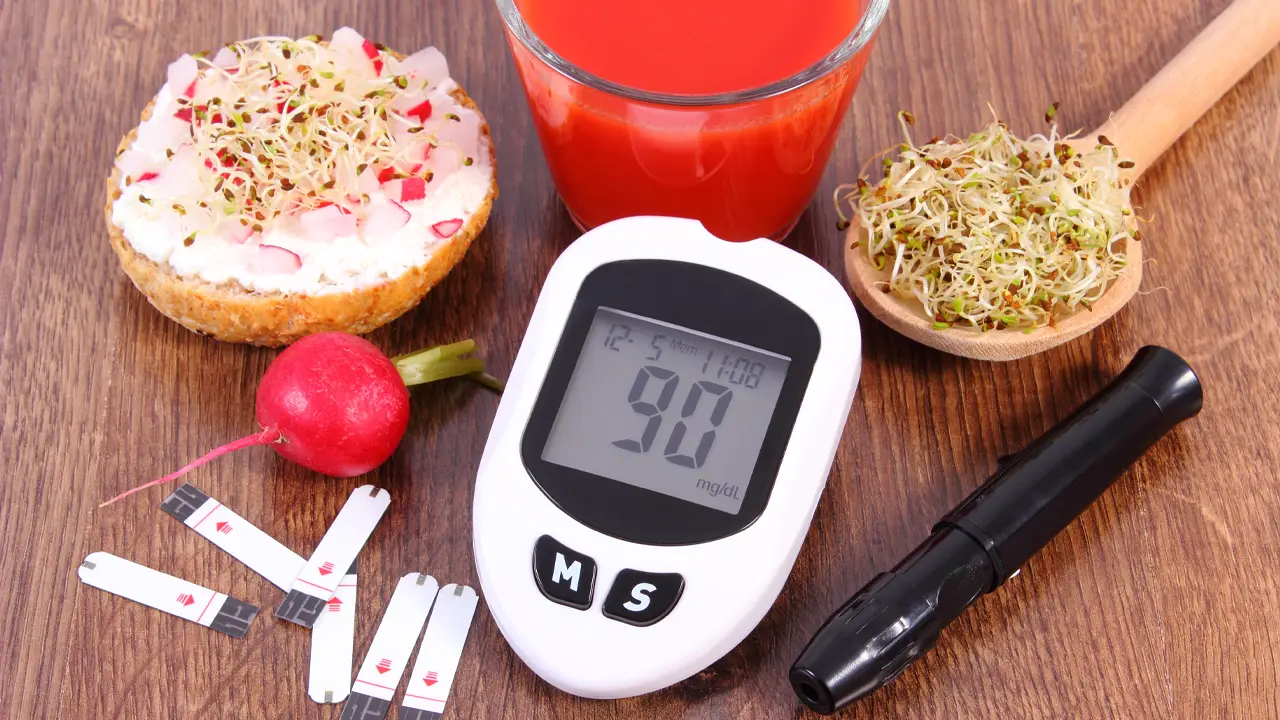Ten Options For Lowering Blood Sugar Suggested By Experts
- Posted on Nov. 7, 2023
- Health
- Views 84
The foods you eat directly affect blood sugar levels, and therefore the development of insulin resistance, the progression of prediabetes and diabetes. Of course, patients with these diseases are forced to monitor not only their diet, but also their weight, physical activity, and timely intake of medications. However, nutrition plays a decisive role in maintaining normal blood glucose levels. Learn more about Lowering Blood Sugar while following the basics of a healthy lifestyle!
Read More

What Does Your Blood Sugar Level Show?
Blood sugar level is one of the most significant indicators of health. Not only the comfort of life depends on it, but also methods for determining treatment strategies for various diseases and the success of the chosen treatment regimen. According to medical standards, the composition of the blood must correspond to the values clearly defined by doctors. Any deviations from the average glucose level indicate corresponding disorders in the functioning of the body. In particular, diabetes is characterized by elevated blood sugar levels.
A blood glucose test is a test that can detect many diseases, from diabetes to neoplasms. Such an analysis is mandatory during pregnancy; it can be taken for preventive and diagnostic purposes, as well as to monitor glucose over time in a number of diseases of an adult patient or child.
Stress control
Stress is the body's reaction to environmental changes and unexpected events. Excessive stress releases hormones, increases heart rate, increases blood pressure and releases energy. Stress also causes blood sugar levels to rise and triggers the stress hormone cortisol.
Regular exercise can help lower blood sugar levels
Physical activity is divided into aerobic and anaerobic activity. Aerobic exercises include walking, Nordic walking, cycling, swimming, dancing, gymnastics or Pilates with resistance bands, cross-country skiing, and ice skating. These activities can be low, medium or high intensity. Exercise bikes, slides and elliptical trainers are also great options for aerobic exercise.
Drink plenty of fluids
2 liters for women and 2.5 liters for men is the required amount of fluid that will prevent dehydration and help the kidneys remove excess sugar. Scientific research confirms that lack of fluid increases the risk of developing hyperglycemia, and adequate fluid intake can help reduce and stabilize blood sugar levels.
Control your carbs
It is not recommended to completely give up carbohydrates; it is much better to create a balanced diet, without overusing carbohydrates, fats, or proteins. If you completely eliminate carbohydrates, you will experience fatigue, constant headaches, loss of concentration, mood swings and even hormonal changes.
Use foods that help lower blood sugar levels
In addition to fiber, leafy greens contain plenty of antioxidants and magnesium. These beneficial substances lower blood sugar levels and reduce the risk of developing diabetes. Fruits and berries such as blueberries, blackberries, apples and oranges slow down the absorption of carbohydrates and prevent high blood sugar levels because they contain high levels of anthocyanins.
Eat more fiber
Consuming fiber in your diet promotes bowel function, which in turn helps you shed extra pounds. At the same time, fiber slows down the absorption of carbohydrates and sugar, thereby regulating blood glucose levels and preventing the development of type 2 diabetes.
Control your weight
If an overweight person is diagnosed with high blood sugar levels, they are usually advised to lose 5-10% of their existing weight over the course of a year. This is not very much, so if you are faced with this problem, pay attention to the number of calories you consume.
Improve your sleep quality
Can't sleep? Check your blood sugar levels! Trouble sleeping at night can be caused by high sugar levels. Diabetes and sleep disorders go hand in hand, so even if you don't have diabetes, high sugar levels can affect how you sleep and stay asleep. Even a few hours of sleeplessness can cause fatigue and cognitive impairment the next day, including difficulty concentrating, remembering and studying.
Conclusion
If the blood sugar level rises, it means that it has not reached the cells. This condition is usually caused by diabetes mellitus. This disease is characterized by a complex of metabolic disorders, but it does not develop instantly. Monitor your health in a timely manner and consult a doctor.


